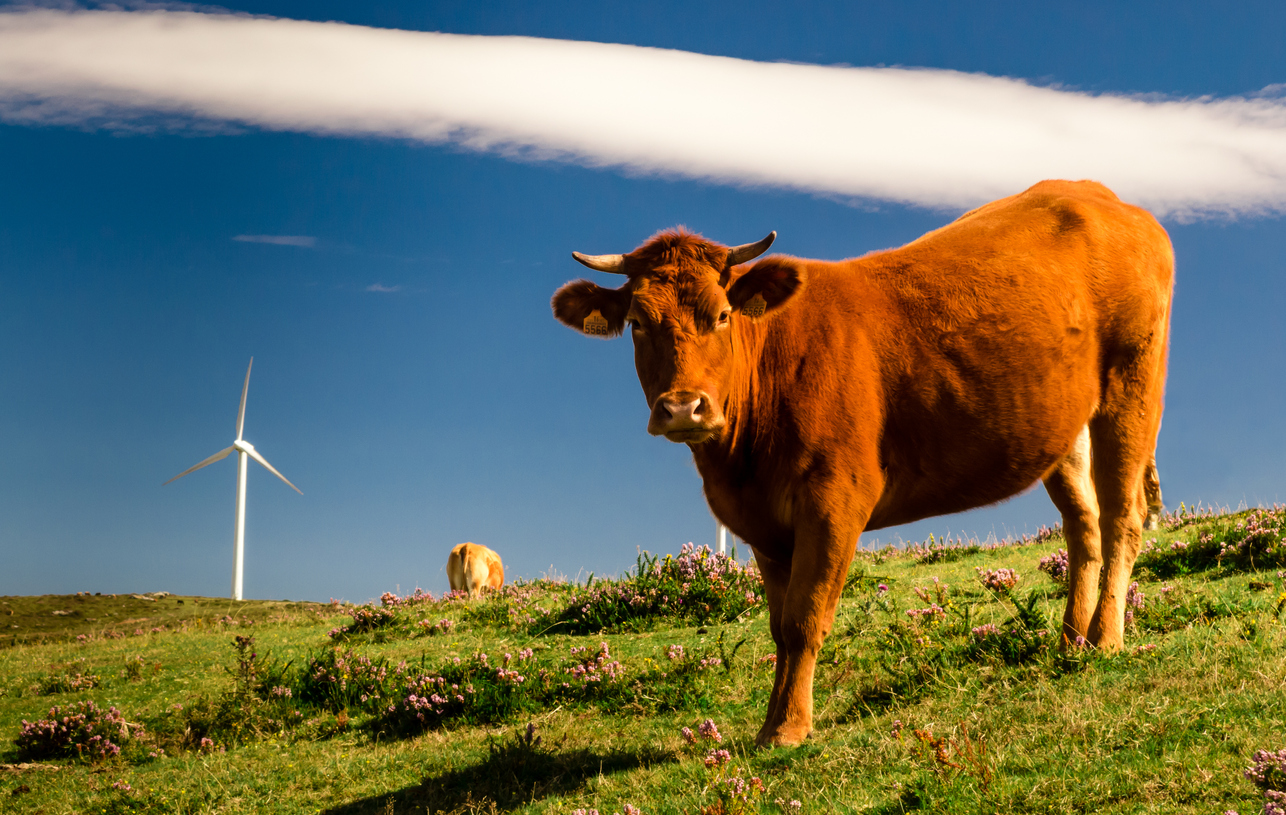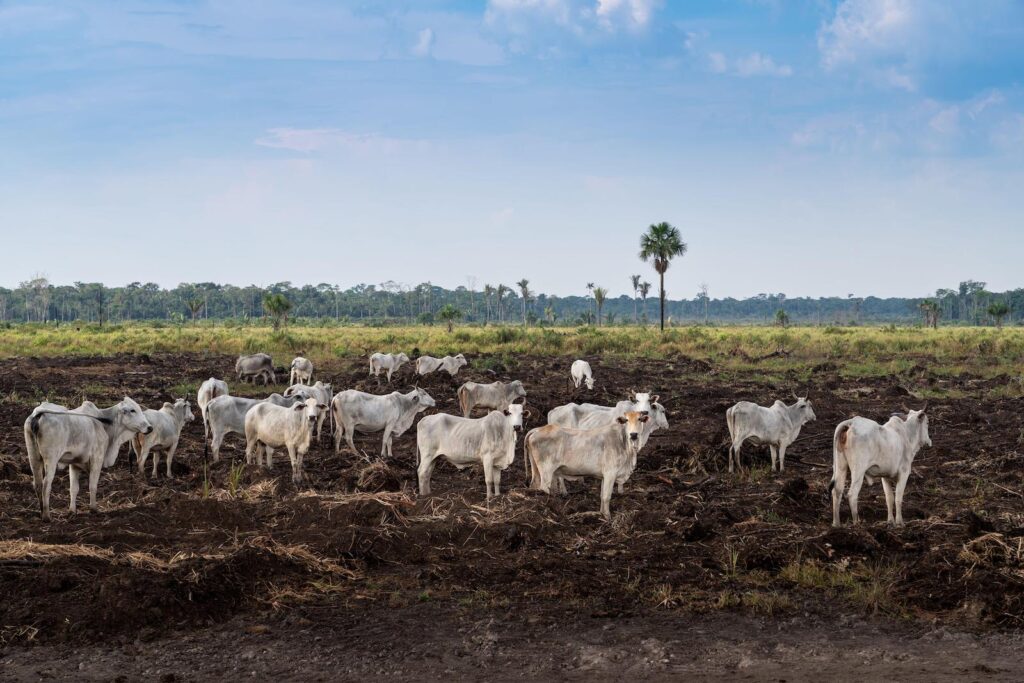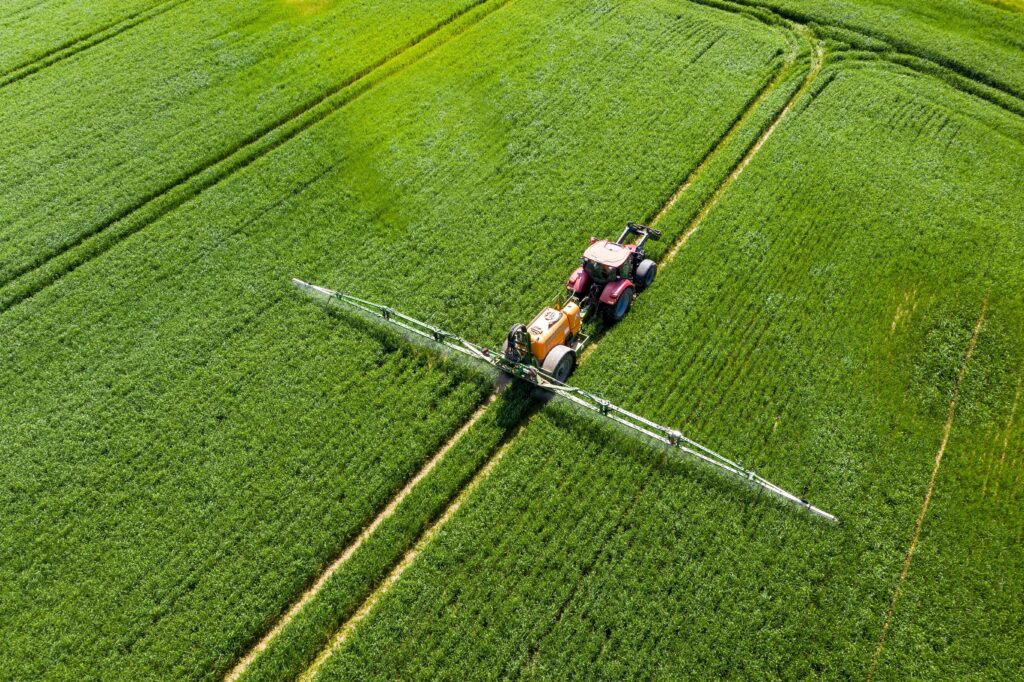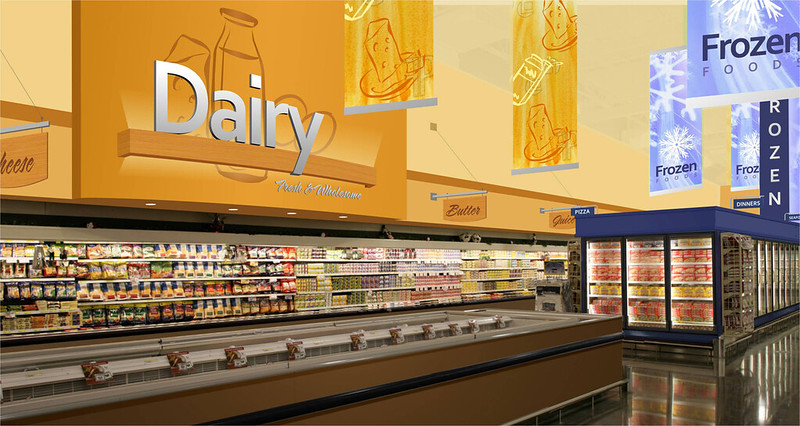Later this month, the National Cattlemen’s Beef Association (NCBA) will head to the 2023 National Agri-Marketing Association’s conference to see if its public relations campaign about beef’s sustainability can secure the national award for campaigns directed to consumers.
Earlier this year, a campaign NCBA began in 2021 called “Beefing up Sustainability,” and a corresponding campaign targeted to kids, advanced to the final round.
Both were part of NCBA’s multi-pronged PR campaign about how beef is actually a climate-conscious food. The group, which is the beef industry’s largest trade association, plastered the New York Times (including its popular podcast The Daily) and the Washington Post with climate-conscious food messaging. It also hired food and nutrition influencers to talk about #sustainablebeef on social media. On Earth Day and during the United Nations Climate Week, it published 85 letters to the editor in local newspapers on “behalf” of cattle farmers proclaiming that beef is sustainable.
The NCBA wrote in its National Agri-Marketing Association’s award submission that Beefing up Sustainability aimed to “combat misinformation about beef sustainability and proactively position beef as a sustainable food.”
However, climate experts would describe beef not as “a sustainable food,” but as a climate problem. For each kilogram of beef produced, nearly 60 kilograms of greenhouse gasses are released. In comparison, wheat releases less than 2 kilograms of greenhouse gasses per kilogram produced.
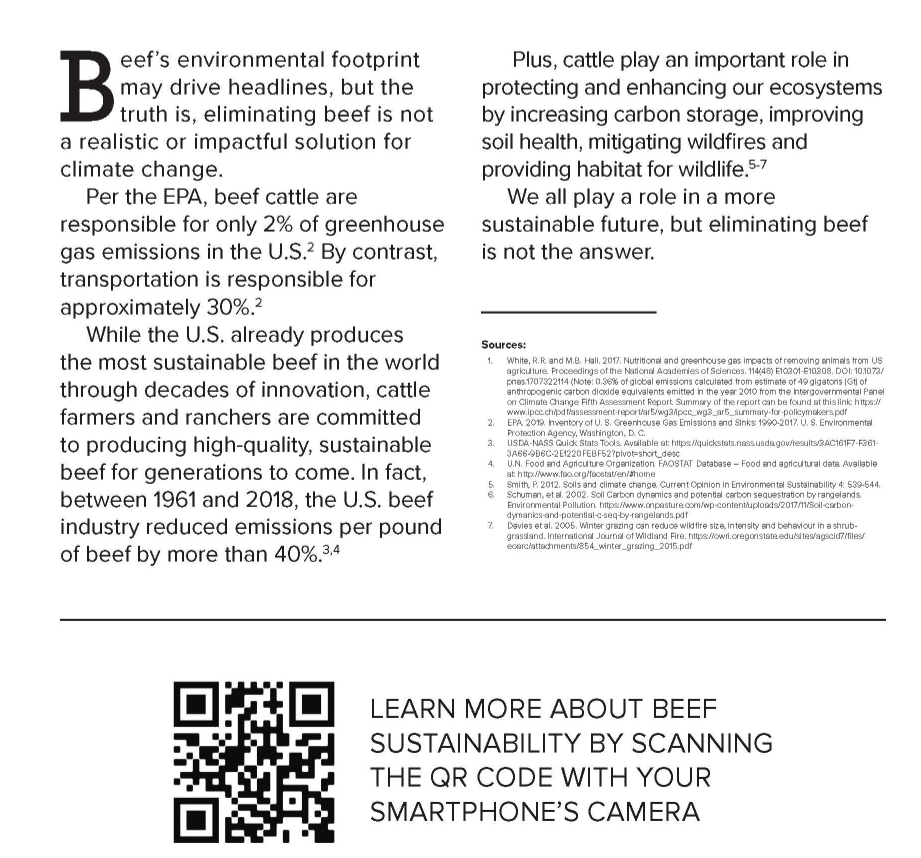
The “Beefing up Sustainability” campaign paints a different picture though. “Per the EPA, beef cattle are responsible for only 2% of greenhouse gas emissions in the U.S.,” it says. However, according to Jennifer Jaquet, an NYU professor researching the advertising and lobbying activities of agribusiness, this low-seeming percentage is due to the United States’s relatively high overall emissions.
This technique of using statements that are technically true but omit crucial information and therefore are misleading, is called paltering — and it’s an old favorite of the fossil fuel industry.
In fact, it’s not the only tactic the NCBA has borrowed from Big Oil. Increasingly, as NCBA and other agribusiness trade associations like the National Pork Producers Council (NPPC) and U.S. Farmers and Ranchers in Action try to convince the public that animal agriculture is sustainable, they are turning to the fossil fuel industry’s tried and true playbook for greenwashing.
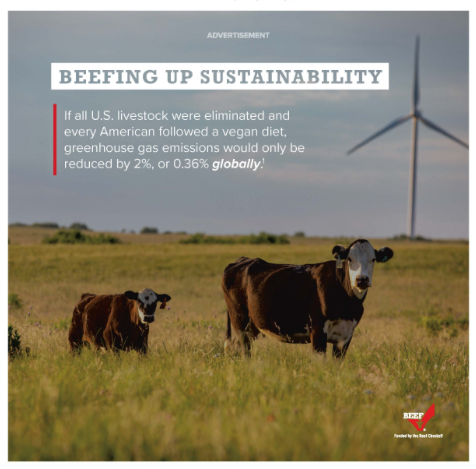
Like fossil fuel trade associations, these agribusiness trade associations are financing and promoting the work of third-party academics; fomenting uncertainty and doubt in cases where the evidence is already clear enough to act upon; and using slick PR and ad campaigns to present the industry as part of the solution to climate change, rather than a contributor to it.
At the bottom of each of NCBA’s “Beefing Up Sustainability” ads is a logo with “Beef Checkoff” written on it. This logo marks the biggest difference between the fossil fuel industry’s PR machine and that of animal agriculture: The animal agriculture industry’s efforts to minimize their products’ climate impact are paid for from a pot of public funds to which all beef and pork farmers and ranchers are required to contribute.
The Checkoffs
These funds, known as the Checkoffs, were set up through the 1985 Farm Bill as a way for producers to pool resources to promote beef, pork, dairy, soybeans, and other agricultural products to the public. The Beef Checkoff program requires every rancher to pay $1 on each live cow sold, and the Pork Checkoff requires producers to pay 35 cents per $100 in live pig sales. Last year, the Beef Checkoff brought in $43.1 million dollars, while the Pork Checkoff collected $106 million from farmers.
There are 19 different Checkoffs promoting various commodities. Although they are run by the U.S. Department of Agriculture, the Checkoff programs do not directly promote their commodities. Instead, they are required to contract with “industry-governed organizations” — private trade associations — to promote products. Each year, trade associations submit proposals to the Checkoffs seeking funding for public relations campaigns and research projects.
Enter the NCBA. Even though the Beef Checkoff paid for the ads proclaiming that “beef is tonight’s sustainable dinner option,” NCBA created the public relations campaign. NCBA, NPPC, the U.S. Meat Export Federation, and Dairy Management Inc. are just a sampling of the private trade associations representing industrial agriculture companies, like the American Petroleum Institute represents oil and gas companies. Yet unlike API, which is funded by dues from member companies, most of these groups’ funding comes from contracts with the public Checkoff programs.
The NCBA receives a whopping 70 percent of its funding from the Beef Checkoff. And while all farmers, however big or small, are required to contribute to the Checkoff, the NCBA’s ranks are stacked with representatives from Big Ag. The Cattlemen’s Beef Board and the Pork Board, which oversee the Beef and Pork Checkoffs and approve the funding requests from trade associations for promotional campaigns, are full of NCBA and NPPC members.
Vaugn Meyer, a committee chairman for R-CALF USA, an association of cattle ranchers and sheep producers, is the rare person who served on the Cattlemen’s Beef Board without being affiliated with NCBA.
“It actually is probably close to 80, 90 [percent],” he says of NCBA members on the Beef Board. “Once in a while, some of those slip in on the other side. I was one of them.”
For the small producers, this close relationship between the Checkoffs and the trade associations that favor industrial agriculture is a problem.
“They [the NCBA] claim to be the voice of the cattlemen, but it’s basically under the table owned by the [meat] packers,” Meyer told DeSmog.
Meyer is referring to the “Big 4” meatpackers — JBS, Tyson Foods, Cargill, and Marfrig — all of which are members of NCBA. They control 85 percent of the market but, unlike cattlemen, they don’t pay into the Beef Checkoff. And while all cattle producers in the United States are required to pay into the Checkoff funds, less than 4 percent are members of NCBA.
R-CALF USA has sued the USDA and the NCBA because it says the Beef Checkoff operates unconstitutionally. It believes that NCBA uses Checkoff funds to benefit meatpackers at the expense of small ranches.
Surbhi Sarang, a lawyer at the public interest firm Public Justice that represents R-CALF USA, says that NCBA’s Checkoff-funded ads allow meatpackers to pay producers less for their beef. NCBA’s ads promote all beef as a sustainable dinner option — which makes it hard for smaller, more environmentally friendly ranches to market their beef as a better option.
“When they are making sustainability claims, it’s applying to all beef and they’re not differentiating between where that beef was produced, or how it was produced, or who it was produced by,” she says. “If the consumer has no reason to seek out anything different, then that’s really just empowering these meatpacking corporations to kind of, you know, increase their margins,” Sarang said.
The Checkoff programs “sell so well; they sound like great opportunities,” Matt Penzer, a lawyer with the Humane Society who has been working on Checkoff lawsuits for years, told DeSmog. “But then you get into the details of how they actually run and it turns out, these are largely private trade associations getting free runs.”
NCBA did not respond to a request for comment.
Small Label, Big Climate Consequences
NCBA is not the only trade association drawing criticism for supporting industrial agriculture at the expense of smaller producers. In 2015, the NPPC, which claims only 3 percent of pig farmers as members, joined NCBA in lobbying to repeal a law that went into effect in 2013 allowing beef and pork producers to put “Made in the USA” labels on their product.
While it might seem counterintuitive that two “national” associations would fight a law allowing producers to put country-of-origin labels on their products, several of the most powerful members of the NCBA and NPPC are large international meatpacking companies that source meat from outside the United States. Meat from outside the United States can have a bigger environmental impact — it is not subject to the same environmental regulations and requires more energy to ship it to meatpacking plants in the United States — but it helps meatpackers cut costs.
After these trade associations and meatpackers spent millions on lobbying, Congress repealed mandatory country of origin labeling in December 2015. Supporters of the “Made in the USA” label say that banning them took away one tool for small farmers to get a premium for their product.
R-CALF USA doesn’t only blame the private trade associations for overturning the law that allowed “Made in the USA” labels. “It’s your own Checkoff working against [you],” Meyer told DeSmog. He believes that Checkoff dollars are empowering groups like NCBA and NPPC to take policy positions that hurt small producers.
David Muraskin, a Public Justice lawyer representing R-CALF USA, told DeSmog that without a differentiator like a country-of-origin label “price rather than production method becomes the differentiator.” As a result, producers are discouraged from “using those climate friendly production methods,” which can drive up costs.
131 Farm and Food Groups Call for Checkoff Reform in the 2023 Farm Bill https://t.co/FaN7Zx85Y0
— R-CALF USA (@RCALFUSA) March 29, 2023
That’s a problem for the climate. As small farms and ranches — where it’s easier to raise cattle in a more environmentally friendly way — have gone out of business in droves, industrial agriculture has replaced them. Concentrated animal feeding operations (CAFOs) with thousands of cows and pigs release more greenhouse gasses than smaller farms, in part because of how large livestock operations manage manure. Since 1990, methane emissions from agriculture have increased nearly 17 percent, largely because of the way manure is managed on large farms.
Like fossil fuel trade associations, agribusiness industry groups lobby to defeat proposed regulations — even if they would benefit small producers and, by extension, the climate. But while API and other fossil fuel industry associations can spend freely on lobbying, groups that receive Checkoff funding, like NCBA and NPPC, are not allowed to use those funds for lobbying.
However, independent producers have long complained that their Checkoff dollars underwrite most of the overhead costs of these trade associations — allowing other funds to go directly into lobbying. On March 29, more than 130 independent producer groups signed onto a letter to Congress requesting that the upcoming Farm Bill bans Checkoff funds from going to trade associations that lobby on agriculture policy.
Blurring the Lobbying Line
In its 2022 annual report, NPPC celebrated that it blocked climate regulations, including a provision of the Clean Air Act requiring livestock producers to report their greenhouse gas emissions. None of this lobbying can be paid for with Checkoff contracts, and there is no evidence that Checkoff funds went towards NPPC’s lobbying in this case. However, lawyers from Public Justice and the Humane Society pointed to past scandals that blurred the lines between commodity promotion — which the Checkoff programs are designed to pay for — and policy promotion.
Through a FOIA request, the Humane Society obtained a 2015 email chain between the COO of the Pork Board and Nick Giordano, the NPPC’s vice president and counsel, global governmental affairs. The USDA oversees the Pork Board, which itself oversees the Pork Checkoff. The COO of the Pork Board told Giordano “It would be good to learn if there are specific needs you have for check off to support your policy work with research or in other ways.” Penzer told DeSmog he believes that it is illegal for Checkoff funds to go toward policy work.

Then there was the $3 million dollar annual fee paid by the Pork Checkoff to NPPC not for promoting pork, but to use the advertising slogan “Pork: The Other White Meat.” Beginning in 2006, the Pork Checkoff paid NPPC each year for the license to this slogan — even though the slogan was retired in 2011. In 2012, a group of farmers who saw the payments as a legal loophole allowing the Pork Board to cover NPPC’s lobbying expenses joined with the Humane Society to sue the USDA. A U.S. District Court stopped the payments in 2018 and criticized the USDA’s decision to sign off on the $3 million annual checks to the NPPC. In 2018, that $3 million fee covered NPPC’s entire lobbying budget.
NPPC did not respond to a request for comment.
The NCBA has also faced legal scrutiny over its use of Checkoff funds. An investigation by the Office of the Inspector General (OIG) of the Beef Checkoff, conducted in 2013 and revised in 2014, called into question what is known as the “accounting firewall” between NCBA’s lobbying and Checkoff activities. The OIG’s investigation began after a 2010 audit of the equivalent of only 9 days of NCBA’s work found that the trade association was improperly charging expenses to the Beef Checkoff, including lobbying. The NCBA was forced to return more than $300,000 to the program as a result of that audit.
The audit also found that in 2010 and 2011 the NCBA charged the travel costs of at least 20 staffers traveling to D.C. to the Beef Checkoff without prior approval from the Cattlemen’s Beef Board. The OIG noted that the NCBA said this trip was part of an approved Checkoff-funded project, but could not identify which project when pressed by auditors.
Even when the Checkoffs are funding projects as the 1985 Farm Bill intended, Penzer says these public funds empower the trade associations’ lobbying. “The amount of money and control they have over industry messaging as a Checkoff entity — the clout that that gives them in the lobbying arena can’t be denied,” he says.
Meyer of R-CALF USA agreed that much of the money industry groups receive from the Checkoffs “ends up going back to lobbying efforts in D.C., on Capitol Hill.”
Checkoff-Funded Research
For years, the oil and gas industry has funded research studies that come to more positive conclusions about fossil fuels than publicly funded research. Animal agriculture trade associations, armed with Checkoff dollars, have begun to do the same.
The Checkoff programs don’t just advertise that eating meat is environmentally friendly — they also fund research to prove that it is. Many of NCBA’s claims that beef is more sustainable than it seems rely on the beef lifecycle assessment, an ongoing study that has been funded by the Checkoff and organized by the NCBA.
Each Checkoff program allocates money for research to support its commodity industry. In 2022, the Beef Checkoff granted $8.1 million to NCBA for research projects, including one initiative to “Inform audiences (i.e., the scientific community, consumer or industry influencers, retail or food service, etc.) on how beef is sustainably raised today.”
UC Davis professor Frank Mitloehner has become the go-to expert when the livestock industry is seeking to back up its claims about meat and dairy production’s climate impacts. He first attracted attention from the animal agriculture industry and the wider public after he published a paper questioning the UN Food and Agriculture Organization’s (FAO) report Livestock’s Long Shadow. The Beef Checkoff Program paid Mitloehner $26,000 to conduct the paper’s study.
The FAO report claimed that livestock’s share of greenhouse gas emissions eclipsed the transportation sector. Mitloehner’s critique of this claim ultimately led the FAO to acknowledge that the comparison between these sectors had not relied on a complete life-cycle analysis of the transportation sector.
The fact that Mitloehner did not question the amount of greenhouse gas emissions from the livestock sector was overlooked in the subsequent media campaign that claimed that the FAO was wrong to blame global warming on livestock.
“He doesn’t at all challenge the fundamental results of Livestock’s Long Shadow,” NYU professor Jaquet told DeSmog. “But he uses that to say, ‘Oh, because [livestock’s climate impact] is not a relative problem in the U.S. — capitalizing on our huge emissions — that we shouldn’t deal with it from a policy perspective.’”
Since Mitloehner came out with his criticism of Livestock’s Long Shadow in 2009, the Checkoff programs have continued to fund his research, which argues that livestock’s environmental impact has been misrepresented. In 2022, the Pork Checkoff committed $600,000 to a partnership with the CLEAR Center, Mitloehner’s lab at UC Davis, so that “the latest science-based information can be amplified and distributed to various audiences, including key decision makers.”
The “latest science-based information” to which the Pork Board is referring includes Mitloehner’s campaign to downplay the impact of methane emissions from the livestock industry. In early 2022, Mitloehner was featured on a Pork Checkoff webinar advocating for methane to be counted differently than it is currently. Mitloehner alleges methane emissions from livestock contribute to no additional warming as long as herd size is kept constant. According to the EPA, methane emissions from agriculture have increased nearly 17 percent from 1990, largely due to livestock production, even as the number of cattle has decreased. The United Nations Environmental Programme’s assessment found that methane has accounted for more than 30 percent of global warming in the modern era.
For Public Justice, these research programs pose a problem for their legal challenges to the Checkoff. Because so many agriculture experts receive money from the Checkoff, the firm struggles to find expert witnesses without a conflict of interest.
“Essentially what this is doing is buying off some of the country’s biggest experts to make sure that they’re not available,” Muraskin told DeSmog.
Whose Speech Are Checkoff Ads?
The Checkoff program has faced challenges in court by producers who say that it is unconstitutional to require payment for speech. In 2005, the U.S. Supreme Court ruled that the Checkoffs are constitutional because they charge for government, not private speech.
This implies that “any message coming out of these programs is the equivalent of the federal government speaking,” Penzer told DeSmog.
“AMS [Agricultural Marketing Service] went to great lengths to save it, insisting it was a government program,” Penzer says about the Beef Checkoff, referring to the 2005 case which went to the Supreme Court. “We own it. It’s our words. It’s our spending. Every word, every dollar is the government.”
This legal argument makes the ads proclaiming that “Beef is the sustainable choice for dinner tonight” or that we can someday have a “carbon neutral pig” government speech, which stands at odds with the Biden administration’s declaration that reducing methane emissions as quickly as possible is crucial to mitigating climate change.
For government speech, some of the Checkoff funded advertising also looks suspiciously anti-competitive. For instance, the Egg Board hired Edelman — which has long represented the oil and gas industry’s greenwashing campaigns — to attack Just Foods’ vegan mayonnaise. Federal investigators later denounced the Egg Board and the USDA’s oversight for overstepping the bounds of the Checkoff program.
“We have the CEO of the Egg Board talking about what a crisis that this product posed, and how they had to deal with it, and hiring a public relations attack firm to do that,” Penzer said. “And all of these are supposedly approved, according to the Supreme Court — every word, every dollar — by the federal government.”
According to climate experts, vegan substitutes like Just Mayo are going to be essential to reducing the climate impact of the meat and dairy industries. Yet the powerful agribusiness trade associations and the Checkoff programs that fund them are doubling down on initiatives that offer dubious climate benefits and negatively impact small producers.
NCBA and the Beef Checkoff have joined the Global Roundtable for Sustainable Beef, which has an initiative to certify certain products as “low carbon beef enrolled.” Meyer says that this effort completely favors larger producers over smaller ones.
When this certification — which requires beef to be produced with 10 percent less GHG emissions than regular beef — was first proposed, Meyer was skeptical. He asked a representative of the Angus Association, an organization promoting the Angus breed of cattle, how small producers could afford the approximately $3,000 annual fee to join this program. He was told that a cattle operation would need 120 or more cows for the verification to be cost effective.
“Well, the average herd of cattle in the United States is somewhere around 42 head. So it’s definitely consolidating the industry or will in the future,” Meyer told DeSmog. And since consolidation leads to larger herd sizes, it also has the potential to negatively impact the climate.
The animal agriculture industry is forging ahead with slick advertising campaigns that downplay its impact on climate change, backed up with statistics from Checkoff-funded research programs. There’s evidence that these public relations campaigns are holding climate regulations on livestock at bay, and NCBA’s chairman has already indicated that the trade association’s next fight is going to be convincing lawmakers to count methane in a way that allows the beef industry to reach “net zero” without reducing the number of cattle.
With hundreds of millions of dollars from various Checkoff programs, the livestock industry is well prepared to follow the fossil fuel industry’s playbook for delaying climate action — even if doing so hurts the small producers that have to pay into the Checkoffs. This leaves the odd collection of conservative rancher groups and environmentalists to keep battling against the Checkoff.
“The only way [the Checkoff program] can possibly work is if the government really gets into strict oversight and ownership of the messaging and the promotions making sure everything’s policy neutral, that it doesn’t pay for Big Ag over Mom and Pop producers, that they make sure that it doesn’t favor those who use extreme confinement and industrial farming methods over those who are free range and quite free,” Penzer told DeSmog. “And that’s just not going to happen given the makeup of the boards.”
Subscribe to our newsletter
Stay up to date with DeSmog news and alerts


